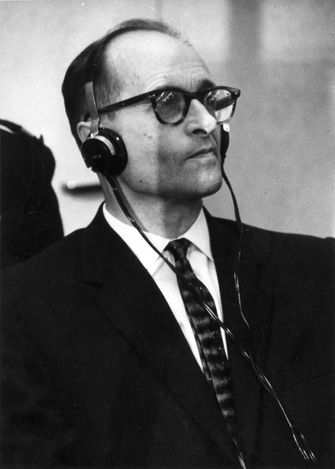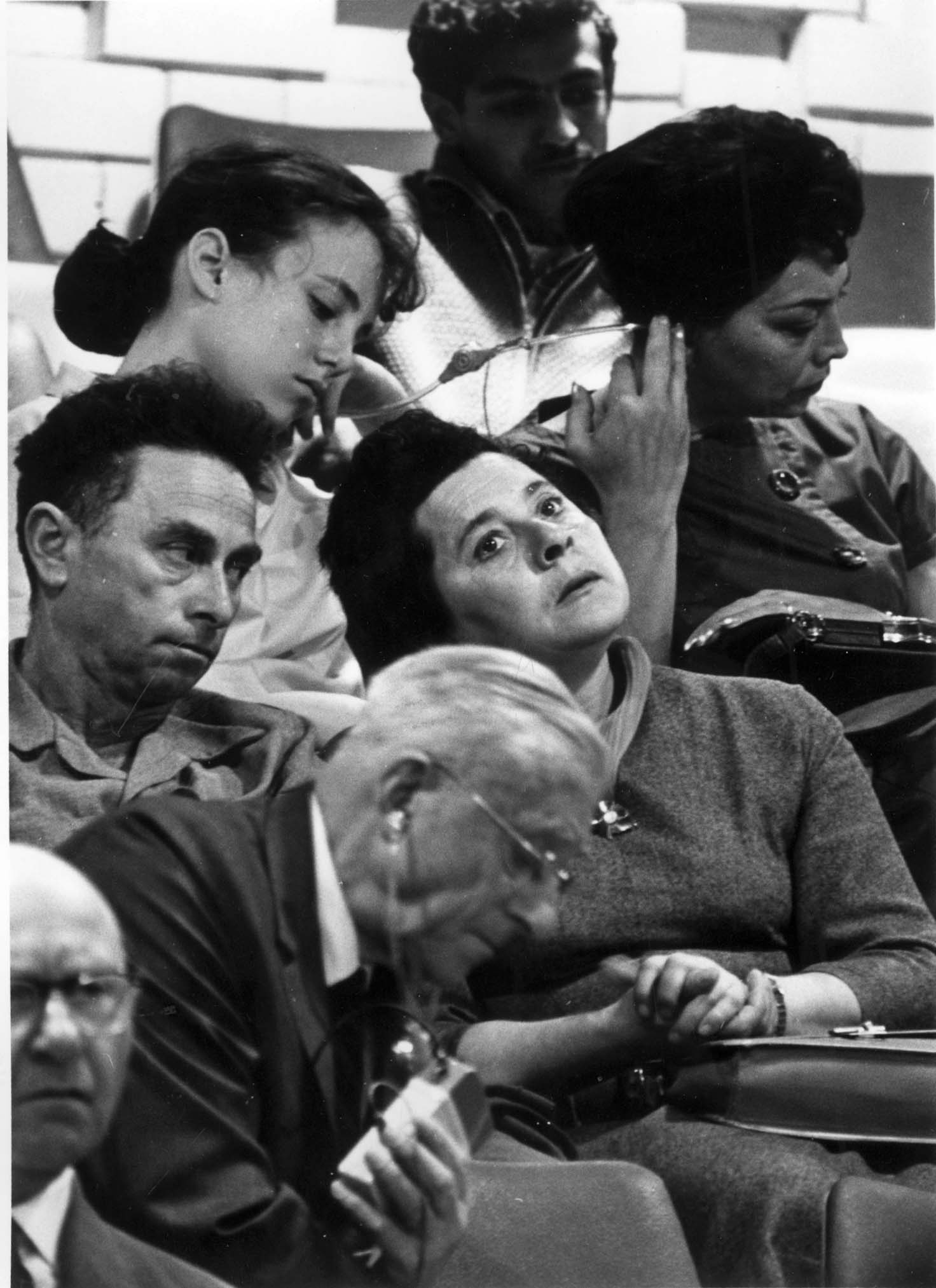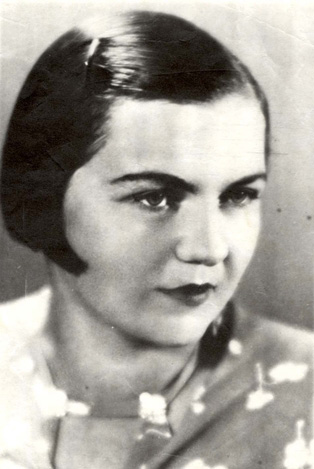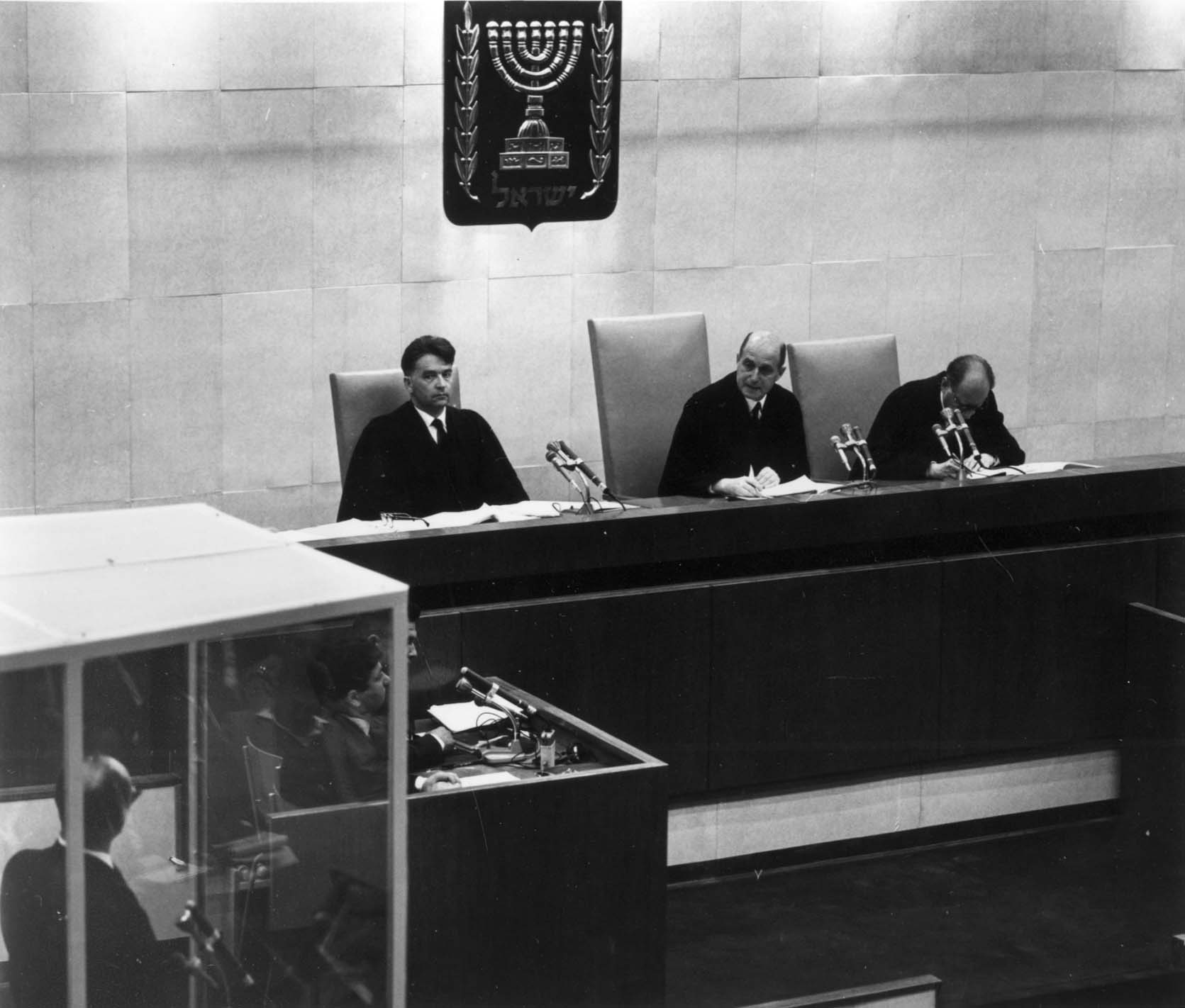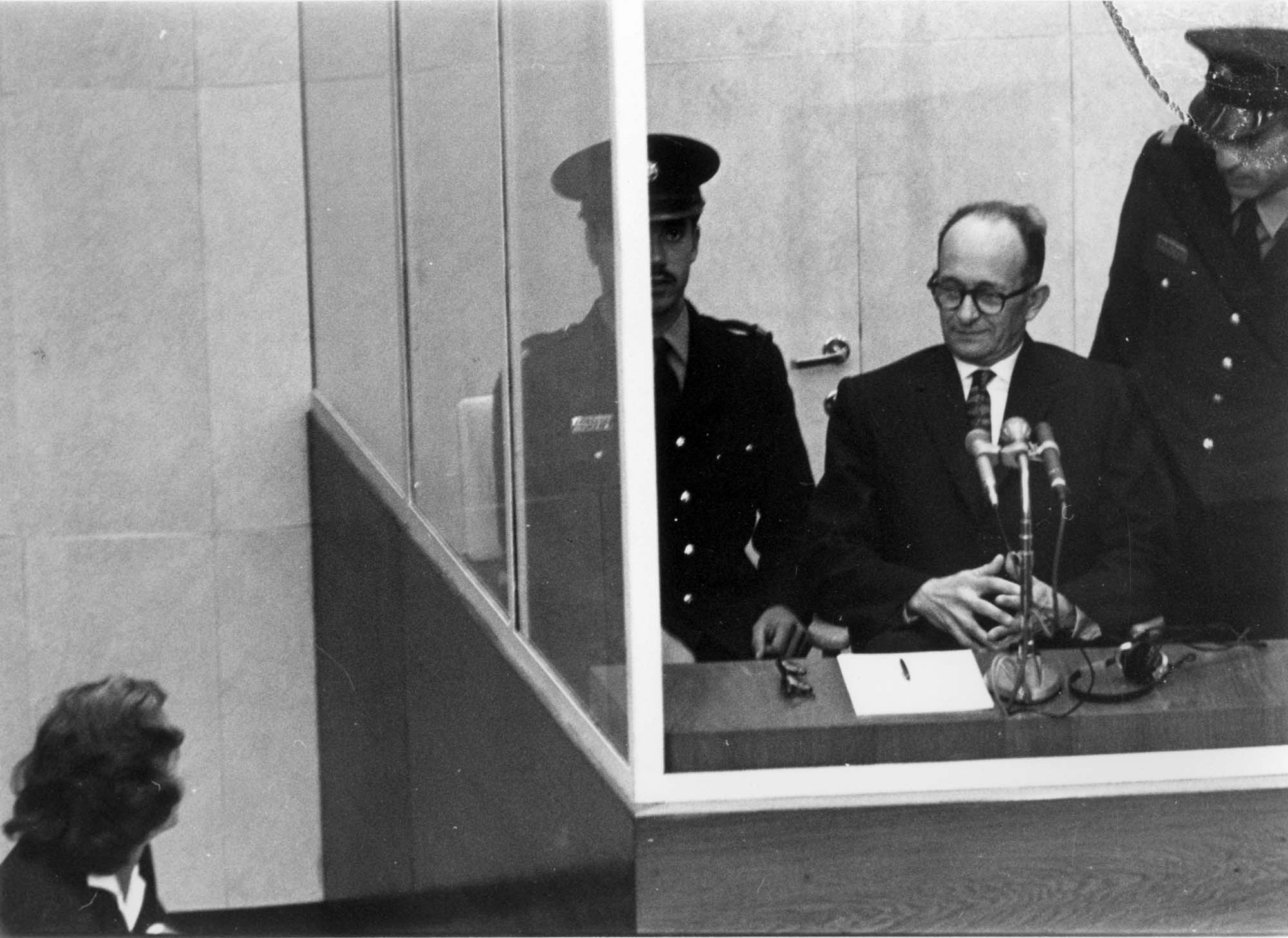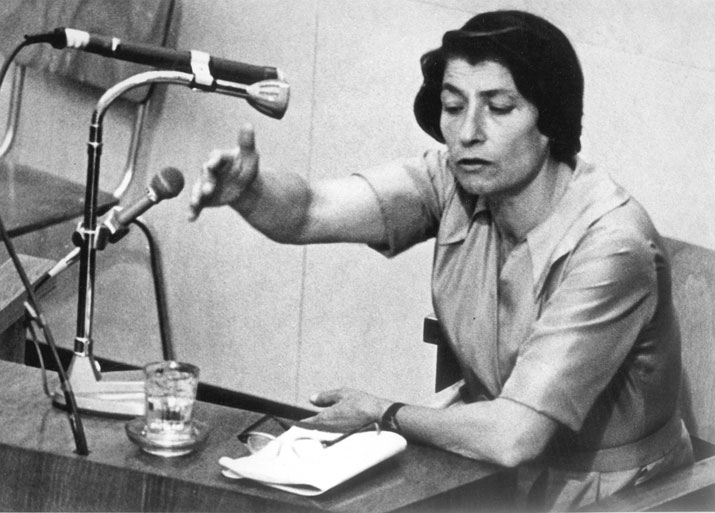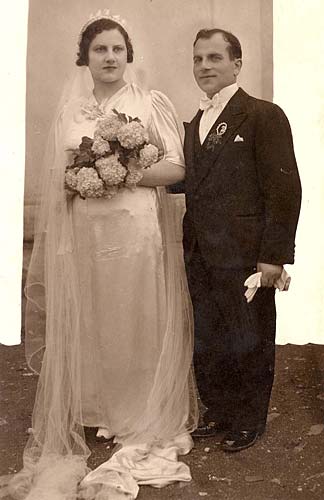Introduction
The Eichmann trial was one of three major trials of the 20th century and remains the most highly publicized trial in Israel's history. The Eichmann trial was in fact the only Holocaust trial that took place in Israel. Other trials, such as the Kastner trial and the Demjanjuk trial, cannot really be categorized as Holocaust trials but rather as cases that dealt with specific issues within the history of the Holocaust. During the trial the prosecution sought to cover the entire story of the Holocaust before the Israeli public. However, every story or episode from the Holocaust did not and could not have unfolded during the Eichmann trial. For some Jewish communities, there is a question as to whether or not the Holocaust happened there, such as in North Africa, whose stories were not told at the Eichmann trial. The story of the Jewish community in Belgium was also not told during the trial because witnesses could not testify about a full-fledged Holocaust that occurred there. It is important to place the trial in context, to give it historical meaning.
The entire Eichmann affair and its overall meaning, can be divided into three stages:
- Eichmann’s capture and preparations for his trial – this stage continued for about one year, from May 1960 until April 1961.
- The trial, from April 1961 to August 1961.
- Verdict and judgement, from December 1961 to May 1962. This included Eichmann’s conviction, sentencing, and appeal.
And now for the context. The state of Israel was going through a period of transition in the early 1960s. Firstly, David Ben Gurion’s charisma was waning. In the 1950s, Israelis had worshiped him as a father and founder of the country, but a decade later, on the verge of ending his political career, and establishing the Rafi political party, he did not exude the same leadership. Secondly, while the years after the "Sinai Affair" in 1956, were the best years in Israel's history, social issues began to arise. There was peace, security, and good diplomatic relations. However, reparations from Germany earmarked to help Holocaust survivors living in Israel, went directly to state coffers. Holocaust survivors began to demand financial compensation before the Eichmann trial, leading to official recognition of Holocaust survivors, and in 1959, the law regarding Holocaust Remembrance Day.
The Eichmann trial itself was caused by a number of factors:
- The public
- The defense and prosecution attorneys
- The judges
- The police
- The witnesses
The Public
Who heard Ben Gurion in the Knesset (Israeli Parliament) on May 23, 1960, announcing that Eichmann had been captured? Who made up the Israeli public that listened to the trial in 1960? There were two million Israelis in Israel at this time. One quarter of them, more than half a million, were Holocaust survivors. About 700,000 were veteran Israelis who immigrated to Israel in 1948 (tens of thousands of these were also Holocaust survivors). 100,000 were Israeli-born youths. There are a number of elements common to all of the above-mentioned groups, except the Arab population. Arabic newspapers at this time did not allow for much self-expression. Therefore, everything that will now follow, only refers to the situation for the Jewish population.
The Defense
Several attorneys applied to defend Eichmann. Some were rejected by the prosecution, some were rejected by family, and eventually Robert Servatius was chosen by Adolf Eichmann's family. The defense team, made up of Robert Servatius and Dieter Wechtenbruch, was hired by the Israeli government and paid for by the state. Servatius sat as the head of the team. Sixty-eight years old, he had experience defending other Nazi war criminals during the Nuremberg trials, though he had belonged to the Hitler Youth in Germany in the 1930s. Servatius lived a long life and died at the age of age one hundred.
There was an argument regarding funding for the defense. The State of Israel asked the Germans to pay for the salaries of the attorneys, but they refused, claiming that Eichmann was an Austrian. Servatius complained about the salary; he received $20,000 for defending the accused. After the trial he requested additional fees for the appeal stage.
During the trial, the defense could not bring its own witnesses because the State of Israel could not guarantee that they would not bring charges against the witnesses, if they were to divulge certain activities from their past. For this reason, several attorneys, including Mr. Erwin S. Shimron, interviewed witnesses abroad. However, none of the witnesses could provide adequate defense testimony for Eichmann. The fairness of the trial was legally in question when you consider the fact that the prosecution brought 110 Jewish witnesses and the defense was not even able to bring one. There were several Israeli lawyers who protested against the defense’s prohibition from bringing witnesses to the stand.
The Prosecution
There were more people on the prosecution team than on the defense. Heading the team of prosecuting attorneys was Gideon Hausner. The deputy attorney was Gabriel Bach. He was also the contact person with the police who conducted the research and investigations. The team also included Yaacov Bar-Or and Gideon Hassid, who was the spokesman for the trial. The fact that there was a spokesman was criticized after the trial.
In addition, there were three police officers who made up the "assemblage unit" whose job was to retrieve materials as the trial progressed. The prosecution also had an historical consultant named Jacob Robinson, a well-known historian who later wrote the book And the Crooked Shall Be Made Straight, as a reply to Hannah Arendt’s book Eichmann in Jerusalem. Alongside Gideon Hausner stood additional lawyers, including the chief lawyer of the Foreign Ministry, Shabtai Rosen.
The Judges
The three judges who were chosen to preside over the trial were an unusual combination. Two were district judges, and at the head of the delegation was a Supreme Court justice. Judges from both courts usually did not sit together on a case. The two district judges were Benjamin Halevi and Yitzhak Raveh from Tel Aviv and the Supreme Court Justice was Moshe Landau. This strange composition was a result of the Benjamin Halevi Law that deals with retroactive legislation and the death penalty. There are a number of retroactive laws related to the Eichmann trial because the crimes that were committed occcurred before the establishment of the country in which the trial took place, thereby against laws not yet enacted. The Benjamin Halevi Law states that when there is a panel of judges and there is a chance that the defendant will be sentenced to death, the panel must be chaired by a Supreme Court justice. Justice Landau was the dominant judge on the Supreme Court, who kept the trial procedures honest and did not let them deviate to the right or left.
The Police
The police had an historic role in the Eichmann trial. After his capture the police department was given a special role and for this a new unit was created known as “Bureau 06,” which numbered more than twenty people. In 1960 nearly nothing was known about the Holocaust, and no historiography of the Holocaust had been published. Only a year later, in 1961, did Raul Hilberg publish The Destruction of the European Jews, which was the first and still remains the most important historiography ever written on the subject.
The Israeli police did the most important work in preparation for the trial. Three names are worth mentioning in this context: Rami Zelinger, Commander of Bureau 06, who immigrated to Israel from Germany in the 1930s; Ephraim Hofstadter, Rami Zelinger's deputy who also came from Germany and served as the Israeli consul in Istanbul; and Mickey Goldman, who was responsible for the case of Poland during the trial.
Eichmann was detained in prison when he was questioned by Avner Less. His guards were deliberately hand-picked for their North African origin, because it was believed that they would not be able to communicate with the defendant as they did not speak the same language, and because they thought that the guards would not want to take revenge against Eichmann because they were not from eastern European origin. Though the press published this fact about the guards, police denied it.
Bureau 06 did what police had never done before: historical research. Each one of the researchers called for during the investigation had gathered tens of thousands of pages of text. Every day at 7:30 AM they would gather at the prison, work until nightfall, and then stay up summarizing the session for several hours. For eleven months, this unit only dealt with Holocaust-related matters.
The documentation indicates that Zelinger was an extraordinary man in addition to being an excellent lawyer. After the trial he asked each member of the police staff to write his memoirs. Those who were Holocaust survivors expressed the fact that there is now a Jewish state that brings justice to those who harm them. Among those who had been born in Israel, was a secretary from Bureau 06 who said that she had attended high school but had not learned about the Holocaust. She noted that this was the first time that the story of the Holocaust had been revealed to her.
Zelinger made two important arguments during the course of the trial. First, he demanded a reference to the number “six million.” He felt that the attorneys had to prove that six million Jews had been murdered in the Holocaust. However, this could not be done and Hausner argued that this number is sanctified in the consciousness of those who use it. This matter highlights the distinction between the legal side and the public side, the memory, and the consciousness that occurred during the Eichmann trial. These are two separate stories.
The Witnesses
The second point that Zelinger stressed regarding the issue of witnesses. Initially he did not think they should subpoena witnesses for trial. He argued that sixteen years have passed since the end of the war, and some of the witnesses may have learned additional pieces of information in that time which they would insert into their testimony, making it inadmissible in court. He told Hausner that they should rest their arguments on documents, similar to the Nuremberg trials. At one point, after a discussion, Zelinger gave Hausner a list of 35 key witnesses. These witnesses had something to say about Eichmann, either because they had met him or were at some point related to his work, such as Hansi Brand who conducted negotiations with Eichmann in Budapest in 1944, and his son Cohen who conducted negotiations with Eichmann in Germany in the 1930s.
Gideon Hausner had good instincts when it came to the media. He apparently made a decision that this trial would be more media-friendly than previous juridical matters had been. In addition to the key witnesses, many of those interviewed to testify said they did not know who Eichmann was and had not even heard his name.
The witnesses were selected in different ways. Through the work of Rachel Auerbach who initiated the Documentation Section at Yad Vashem, witnesses could be chosen based on primary sources. From 1953 to 1959, Auerbach had collected nearly 2,800 testimonies of Holocaust survivors. From the 2,800, a few were selected to testify at trial. There were also witnesses suggested by their country of origin, and some chosen randomly.
On the first day of the trial, the press reported on the lines that trailed before the courtroom. One of those waiting was Zindel Greenspan who was the father of Herschel Greenspan. He was summoned to testify at trial a short time later. There were witnesses who wanted to testify but were disqualified. There were witnesses who Gideon Hausner was sure would testify, for example, Antek (Isaac) Zuckerman and Zivia Lubetkin. Gideon Hausner disqualified Hayka Grossman from testifying and she never forgave him for this. There was a large influx of those wishing to testify in Bureau 06. Thousands of survivors wanted to testify and Bureau 06 conducted their preliminary screening. The witness needed to be capable of speaking, up to telling his/her story, and have had some connection to Eichmann. In addition, there were political guidelines. For example, Golda Meir, then foreign minister, sought to highlight the issue of racism in order to improve relations with Africa. Golda stressed that they should emphasize the relationship between Israel and the Mufti in order to interest Arab countries in the trial. At that time there were German scientists in Egypt. There were instructions not to mention Hans Globke who was Secretary in the Office of Chancellor Adenauer, so as not to hurt relations with the new Germany. Representatives from a spectrum of political factions appeared in the courtroom, such as Abba Kovner from Hashomer HaTzair, members of Mapai, and Beitar.
Justice Landau was asked about testimony that especially excited him during the trial and he said that evidence had not moved him but he was angered by the testimony of Abba Kovner who spoke about himself, the ghetto, and nothing more. The judge suspended testimony in the middle.
In terms of witnesses it was intended that there would be a representative from each country. There were a number of witnesses from Poland, whereas some of the other countries only had one witness. Due to this reality, there was little told of the story of the Jews from Greece. The only testimony given at trial was behind closed doors in accordance with Gideon Hausner’s decision. So the stories of Greece and Belgium cannot be counted. Two other communities asked to testify and they were never answered: the Tunisian immigrant community in Israel and representatives of the Libyan community.
The Holocaust of Polish Jewry eclipsed all the disasters that occurred in other communities. 110 witnesses were the core of the case. The public recalls the hanging of Eichmann and maybe one witness testimony. The most memorable testimony is also the shortest given by Yehiel Denur, also known by his pen-name “K. Tzetnik.” This evidence is remembered for two reasons, one because K. Tzetnik lost consciousness. Second, because of unfortunate expression he used, "Planet Auschwitz." The concept caught like wildfire. It was easier to put the Holocaust on another planet than to deal with it at eye level. K. Tzetnik tried to renounce this expression many times, without success.
The testimonies were conducted deliberately to tell a narrative. The first witness, historian Salo Baron testified about the Jewish world before the Holocaust. The testimonies continued through the period of the ghettos and the concentration and death camps and concluded with testimony by Aaron Hoter Yishai about the Zionist movement during the Holocaust.
While the witnesses were central to the public discourse, their testimonies were excluded from the court ruling. One witness was mentioned by the judges in their ruling and that was Abraham Gordon who told of the "murder in the cherry field." According to Gordon, Eichmann himself murdered a child who tried to steal cherries from his garden. This evidence is mentioned because the judges say that they do not believe the witness. The courtroom transcripts mention that the police recommended to Hausner not to use this testimony because it did not seem credible in the eyes of the investigators. The following excerpt from the ruling is meant to show the difference between the view of the judges and the public/visual/emotional/memory perspective:
“Adolf Eichmann was tried before this court over accusations of the utmost severity - accusations against the Jewish people, crimes against humanity, and war crimes. The time to which the crimes are attributed and their historical background is the reign of Hitler in Germany and Europe, and folded within this time is the Holocaust of the Jewish people – a blood-soaked affair and suffering that will be remembered until the end of time. This is not the first time that the Holocaust has been brought before a court. It was discussed at length at the International Military Tribunal in Nuremberg of the national major war criminals as well as some other sentences that followed. But this time it was put at the center of the debate, and that is what distinguished this case from all that preceded it. There were also those who sought to clarify some tough questions - questions such as: How could it happen in light of today, and why did this great evil come from the German people in particular? Could the Holocaust have been prevented, at least in part, if the Allies had discovered people willing to help the persecuted Jews? Did the Jewish people in free countries do everything they could to help their brethren? Are these psychological and social reasons the same hatred that fueled antisemtism? Can this ancient disease be cured and by what means? What can people learn from this treatment of others? Through the maze of the trial the questions became clear. With these words we cannot ignore the educational values that lie in the facts that this trial, the people of Zion, and beyond the borders of this country. If this result is achieved by way of the discussion that we have welcomed... Evidence must be rendered in this case by Holocaust survivors, who opened their hearts in the witness box. This is valuable material for the researcher and historian. But regarding the courtroom there is nothing but results of the effects of the trial.”
More Information on Salo Baron
Salo Wittmayer Baron, Salo Baron (May 26, 1895, Tarnów, Galicia - November 25, 1989, New York City) was an American historian of Polish-Austrian Jewish ancestry and the most noted historian of the Jews of his generation. Baron taught at Columbia University from 1930 until his retirement in 1963.
The town where Baron was born, Tarnow, was in Galicia, which was then part of the Austro-Hungarian Empire but is now in Poland. Baron's family was educated and affluent, part of the Jewish aristocracy of Galicia. His father was a banker and president of the Jewish community of 16,000. Baron's first language was Polish, but he knew twenty languages, including Yiddish, Biblical and modern Hebrew, French and German, and was famous for being able to give scholarly lectures without notes - in five languages. Baron received rabbinical ordination at the Jewish Theological Seminary in Vienna in 1920, and earned three doctorates from the University of Vienna, in philosophy in 1917, in political science in 1922 and in law in 1923. He began his teaching career at the Jewish Teachers College in Vienna in 1926, but was persuaded to move to New York to teach at the Jewish Institute of Religion by Rabbi Stephen S. Wise New York.
Baron's appointment as the Nathan L. Miller Professor of Jewish History, Literature and Institutions at Columbia University in 1929 is considered to mark the beginning of the scholarly study of Jewish History in an American university.
According to Yosef Hayim Yerushalmi, Baron "was undoubtedly the greatest Jewish historian of the 20th century."
Baron opposed the "lachrymose conception of Jewish history," sometimes identified with Heinrich Graetz, a great 19th-century Jewish historian who found the main elements of Jewish experience through the ages to be suffering and spiritual scholarship. In a 1975 interview, Baron said "Suffering is part of the destiny [of the Jews], but so is repeated joy as well as ultimate redemption."
Professor Baron also strove to integrate the religious dimension of Jewish history into a full picture of Jewish life and to integrate the history of Jews into the wider history of the eras and societies in which they lived.
On April 24, 1961, Professor Baron testified at the trial of Adolf Eichmann in Jerusalem. Baron explained the historical context of the Nazi genocide against the Jews. He further explained that in his birthplace, Tarnow, there had been 20,000 Jews before the war but, after Hitler, there were no more than 20. His parents and a sister were killed there.
In addition to his scholarly work, Baron was active in organizational efforts to maintain and strengthen the Jewish community both before and after World War II. From 1950 to 1968, he directed the Center of Israel and Jewish Studies at Columbia University. He received more than a dozen honorary degrees from universities in the United States, Europe and Israel and was elected to the American Academy of Arts and Sciences.
The Salo Wittmayer Baron Chair of Jewish History, Culture and Society at Columbia University was created in his honor.




